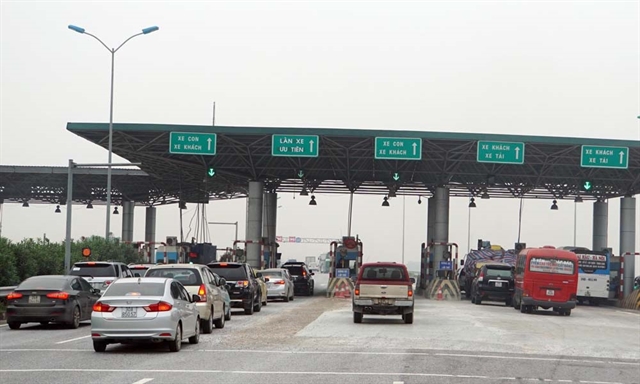 Economy
Economy


|
| A toll booth station on Pháp Vân - Cầu Giẽ Highway which was built under build-operate-transfer practice. The law on public-private - partnership must clarify ownership rights and risk-sharing, experts say. – Photo thanhnien.vn |
HÀ NỘI – Ownership rights and risk-sharing mechanisms must be clarified in public-private partnership (PPP) law to encourage the participation of private investors and ensure efficiency as well as transparency of PPP projects, according to Trần Chủng, Chairman of the Việt Nam Association of Road Traffic Investors.
The draft PPP law is expected to be passed at the 14th National Assembly’s ninth meeting later this month.
Chủng said that the nature of PPP was a fixed-term contract between the Government and a private investor to get the private sector involved in providing public services and products.
Under the latest draft, regulations about ownership rights, obligations of the contract’s entities and how to handle disputes and violations remained vague and needed more consideration, said Chủng.
Dương Đăng Huệ from the Việt Nam International Arbitration Centre (VIAC) said the law should clarify the ownership rights of investors in PPP projects, which was important to attract the private investment and ensure accountability. The latest draft ignored this issue, Huệ said.
Phạm Văn Thưởng, deputy general director of Construction Investment 194 Joint Stock Company, said in PPP, risk-sharing was the core to attract investors.
Thưởng added that investors expected the Government would protect their rights even when there were changes in policies and planning which might cause drops in revenue.
To attract private investors to PPP projects, the Government needs preferential policies in areas like banking credit and lending rates, Thưởng said.
Regarding the risk-sharing mechanism in the latest draft, lawyer Lê Đình Vinh from the VIAC said the investor was still at a disadvantage compared to the Government.
Under the draft, when the project earns higher revenue than planned, the excess will be shared between the Government and the investor. However, when the project’s revenue is lower than planned, the Government would share the loss with the investor only when there were changes in policies and planning which affected revenue collection.
Vinh said the mechanism should be given more consideration to ensure balance.
Another important matter in PPP was regulations about handling disputes, VIAC lawyer Nguyễn Tiến Lập said.
Lập said that in many countries, about 60 per cent of PPP projects did not reach the expected targets in terms of financial efficiency, quality and technology. PPP was a way to raise private investment but in fact, the investment was mainly lent by banks and the risks would be on the Government if the investors went insolvent.
Lập said PPP projects should be focused more on the community’s benefits rather than the Government, investors or lenders.
In addition, transparency must be ensured when implementing PPP projects, from selecting investors, raising capital, fee levels, payback period and revenue.
Việt Nam, to date, has 336 projects implemented following PPP practice, mainly transport infrastructure projects. – VNS




